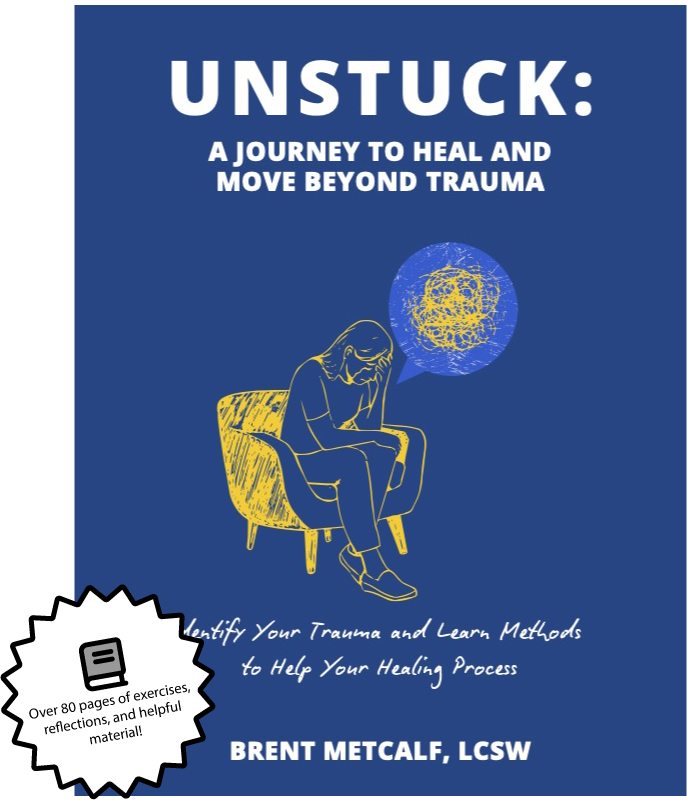The Intersection of Trauma & Substance Use
Category: Substance Use & Behavioral Recovery // Trauma
Trauma and substance use are two complex issues that are often intertwined. Substance Use Disorder (SUD) is a chronic disease that affects millions of people worldwide, while trauma is a deeply distressing or disturbing experience that can have long-lasting effects on an individual’s mental health. The intersection of trauma and substance use is an area that has received significant attention in recent years. This blog post aims to explore the relationship between trauma and substance use, and how the two can be treated through therapy and other means.

Topic Of Discussion
Defining Trauma and Substance Use Disorder
Trauma is an emotional response to a distressing or disturbing event or experience. It can be a single event, such as a natural disaster, or an ongoing experience, such as emotional abuse. Trauma can lead to a range of mental health problems, including post-traumatic stress disorder (PTSD), anxiety, and depression.
Substance Use Disorder, on the other hand, is a chronic disease that affects the brain’s reward system. It is characterized by compulsive drug-seeking behavior, despite the negative consequences that it may bring. Substance Use Disorder and other addictive behaviors can result from the use of drugs or alcohol, but it can also involve behaviors such as gambling or eating.
The Intersection of Trauma and Substance Use Disorder
Trauma can be a significant risk factor for the development of substance use disorder. People who have experienced trauma may turn to drugs or alcohol as a way to cope with their emotions or to numb themselves from their pain. In some cases, individuals may develop a substance use disorder to prescription painkillers after experiencing a traumatic injury or surgery.
Research has shown that trauma and SUD(s) can have a complex and reciprocal relationship. Trauma can increase the risk of Substance Use, while Substance Use Disorder can also increase the risk of experiencing trauma. For example, people with SUD may be more likely to experience traumatic events, such as accidents or violence, due to their impaired judgment and increased risk-taking behavior.
Furthermore, individuals with a history of trauma may be more vulnerable to relapse after beginning recovery. This is because traumatic memories or triggers can lead to intense emotions and cravings, making it difficult for individuals to maintain their sobriety.
Treatment for Trauma and Substance Use Disorder
Treating trauma and substance use can be challenging, as the two issues are often intertwined. However, there are evidence-based therapies that can help individuals overcome both issues simultaneously. One of the most effective therapies for treating trauma and substance use is trauma-focused cognitive-behavioral therapy (TF-CBT).
TF-CBT is a form of therapy that aims to help individuals process their traumatic experiences and develop coping strategies to manage their emotions. It combines elements of cognitive-behavioral therapy (CBT), which focuses on changing negative thought patterns, and exposure therapy, which involves gradually exposing individuals to their traumatic memories in a safe and controlled environment.
TF-CBT has been shown to be effective in treating PTSD, as well as other mental health problems that may co-occur with trauma, such as depression and anxiety. It has also been shown to be effective in treating SUD, particularly when used in conjunction with other evidence-based treatments, such as medication-assisted treatment (MAT) and 12-step programs.
In addition to TF-CBT, other evidence-based treatments for trauma and Substance Use Disorder include eye movement desensitization and reprocessing (EMDR), Brainspotting and dialectical behavior therapy (DBT). EMDR is a form of therapy that uses eye movements to help individuals process traumatic memories, while DBT focuses on teaching individuals skills to manage their emotions and improve their relationships.
Conclusion:
Trauma and Substance Use Disorder are two complex issues that are often intertwined. Trauma can increase the risk of SUD, while substance use can increase the risk of experiencing trauma. The relationship between trauma and Substance Use Disorder is complex and requires specialized treatment.
There are evidence-based therapies, such as TF-CBT, EMDR, Brainspotting and DBT, that can help individuals overcome both trauma and SUD simultaneously. Seeking professional help is essential for individuals struggling with these issues.
If you or someone you know is struggling with trauma and SUD, it is important to seek professional help as soon as possible. A licensed therapist or counselor can help you develop a treatment plan that is tailored to your individual needs. Remember, recovery is possible, and seeking help is the first step towards a healthier, happier life.
Identify Your Trauma Learn Methods to Help Heal Start Your Healing Journey Today!
The UNSTUCK workbook is designed to help you move beyond trauma by answering key questions like, Can you get stuck at the age your trauma happened? Through guided exercises, you’ll explore different types of trauma and break free from patterns holding you back. Take the next step in your healing journey today!



